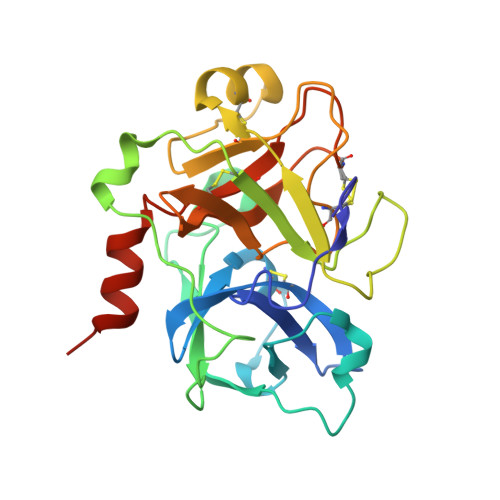Structure-based design of inhibitors of coagulation factor XIa with novel P1 moieties.
Pinto, D.J., Smallheer, J.M., Corte, J.R., Austin, E.J., Wang, C., Fang, T., Smith, L.M., Rossi, K.A., Rendina, A.R., Bozarth, J.M., Zhang, G., Wei, A., Ramamurthy, V., Sheriff, S., Myers, J.E., Morin, P.E., Luettgen, J.M., Seiffert, D.A., Quan, M.L., Wexler, R.R.(2015) Bioorg Med Chem Lett 25: 1635-1642
- PubMed: 25728130
- DOI: https://doi.org/10.1016/j.bmcl.2015.01.028
- Primary Citation of Related Structures:
4X6M, 4X6N, 4X6O, 4X6P - PubMed Abstract:
Compound 2 was previously identified as a potent inhibitor of factor XIa lacking oral bioavailability. A structure-based approach was used to design analogs of 2 with novel P1 moieties with good selectivity profiles and oral bioavailability. Further optimization of the P1 group led to the identification of a 4-chlorophenyltetrazole P1 analog, which when combined with further modifications to the linker and P2' group provided compound 32 with FXIa Ki=6.7 nM and modest oral exposure in dogs.
- Bristol-Myers Squibb Company, Research and Development, 311 Pennington-Rocky Hill Rd., Pennington, NJ 08534, United States. Electronic address: donald.pinto@bms.com.
Organizational Affiliation:



















